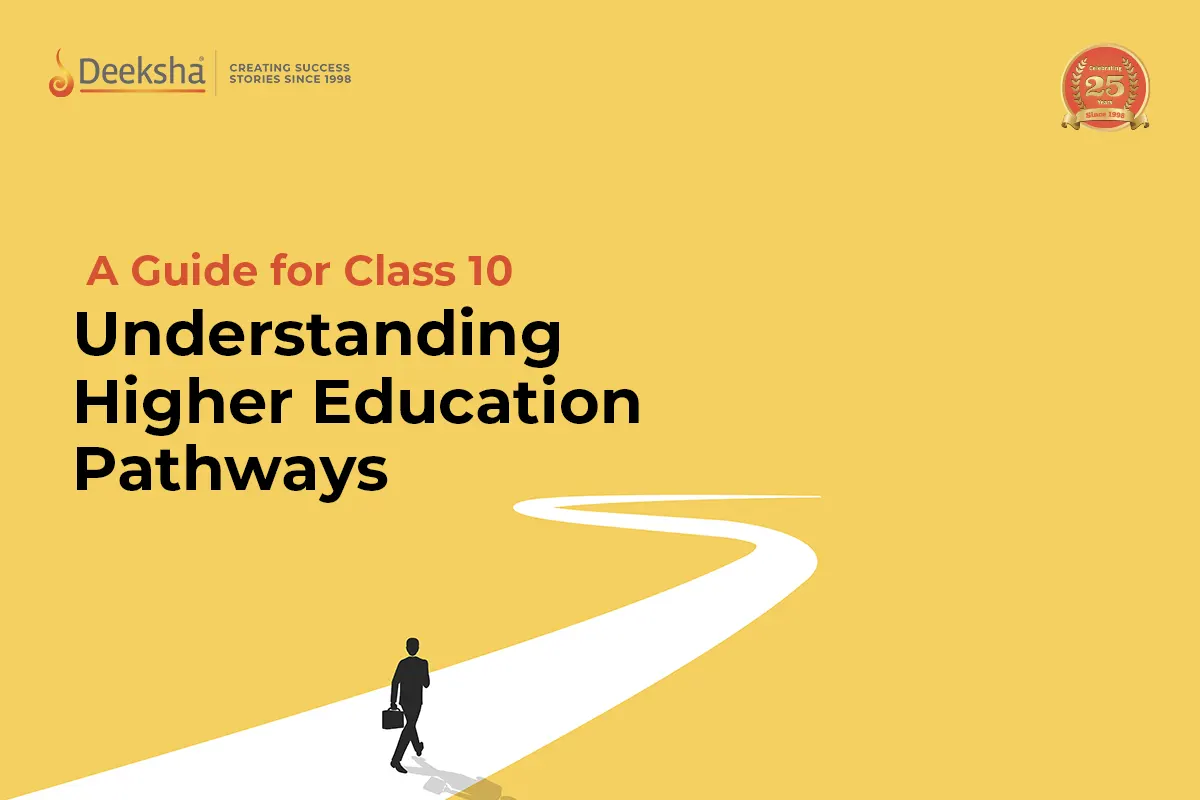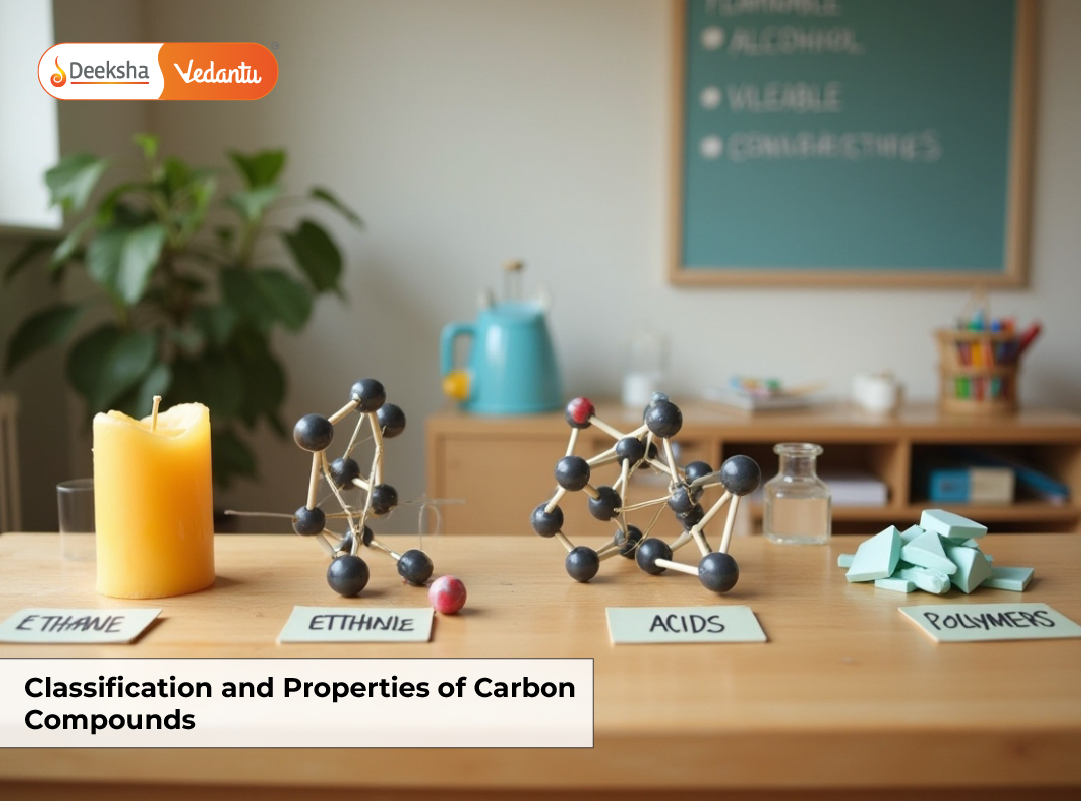Introduction to Higher Education
Higher education plays a pivotal role in shaping the academic and professional trajectory of students post-Class 10. Understanding the significance of higher education choices and exploring career opportunities is essential for informed decision-making.
Significance of Higher Education Choices:
- Higher education choices lay the foundation for specialized knowledge and skills development.
- They align with individual interests, strengths, and career aspirations, guiding future academic and professional paths.
- Proper higher education choices enhance employability, job satisfaction, and long-term career growth.
Career Opportunities Post-Class 10:
- Higher education opens doors to a wide range of career opportunities across various industries and sectors.
- It enables students to pursue specialized professions, advance in their chosen fields, and contribute meaningfully to society.
- In today’s dynamic job market, higher education equips individuals with the necessary competencies to thrive in diverse roles and industries.
Exploring Academic Streams
Choosing an academic stream after Class 10 is a crucial decision that shapes a student’s educational and career path. Here’s an overview of the main academic streams – Science, Commerce, and Arts – along with insights into career prospects in each stream.
Science, Commerce, Arts Overview:
- Science Stream: Focuses on subjects like Physics, Chemistry, Biology/Mathematics, and Computer Science.
- Commerce Stream: Involves subjects such as Accounting, Economics, Business Studies, and Mathematics/Statistics.
- Arts Stream: Includes subjects like History, Geography, Political Science, Sociology, Languages, and Fine Arts.
Career Prospects in Different Streams:
- Science Stream: Leads to careers in Medicine, Engineering, Research, Biotechnology, Computer Science, IT, Pharmacy, and Scientific Research.
- Commerce Stream: Offers career opportunities in Chartered Accountancy (CA), Company Secretaryship (CS), Cost and Management Accountancy (CMA), Banking, Finance, Business Management, and Marketing.
- Arts Stream: Opens avenues in Journalism, Law, Education, Social Work, History, Psychology, Linguistics, Arts, and Public Administration.
Navigating Entrance Exams and Admissions
Navigating entrance exams and admissions processes is crucial for students aiming to pursue higher education after Class 10. Here’s a detailed look at common entrance exams and key aspects of admission procedures:
Common Entrance Exams:
- JEE (Joint Entrance Examination): Entrance exam for admission to premier engineering institutes such as IITs, NITs, and other top engineering colleges.
- NEET (National Eligibility cum Entrance Test): Mandatory for admission to undergraduate medical (MBBS) and dental (BDS) courses in India.
- CET (Common Entrance Test): State-level entrance exams conducted for admission to engineering, medical, and other professional courses within respective states.
- CLAT (Common Law Admission Test): Entrance exam for admission to undergraduate law programs in top law colleges across India.
Admission Procedures and Deadlines:
- Application Process: Understanding application requirements, filling out forms accurately, and submitting necessary documents within specified deadlines.
- Exam Preparation: Developing effective study plans, practicing previous years’ question papers, and seeking guidance from mentors or coaching institutes for exam preparation.
- Exam Dates and Results: Keeping track of exam dates, downloading admit cards, appearing for exams, and checking results as per the announced schedules.
- Counseling and Seat Allocation: Participating in counseling sessions, choice filling for preferred colleges/courses, and completing admission formalities as per counseling guidelines.
Navigating through these entrance exams and adhering to admission procedures and deadlines require meticulous planning, dedication to preparation, and staying updated with relevant information. It’s essential for students to approach these processes systematically to secure admission into their desired courses and institutions.
Deciding on Courses and Colleges
Making informed decisions about courses and colleges is crucial for students after Class 10. Here’s an exploration of factors influencing course selection and the importance of researching institutions and programs:
Factors Influencing Course Selection:
- Interests and Passion: Opting for courses aligned with personal interests and passions to foster motivation and enjoyment in learning.
- Career Goals: Considering career aspirations and selecting courses that lead to desired professions or industries, with Deeksha providing insights into diverse career paths.
- Skill Set: Assessing individual strengths, skills, and aptitudes to match with suitable courses and explore specialized training offered at Deeksha.
- Market Demand: Researching job market trends and demand for specific skills, where Deeksha’s industry-aligned programs can enhance future employability.
- Financial Considerations: Evaluating course fees, availability of scholarships, and potential return on investment in terms of career prospects, with Deeksha offering quality education at affordable costs.
Researching Institutions and Programs:
- Accreditation and Rankings: Checking accreditation status and rankings of colleges/universities for quality assurance and recognition.
- Curriculum and Specializations: Reviewing course curriculum, specializations offered, and faculty expertise relevant to chosen fields of study.
- Infrastructure and Facilities: Assessing infrastructure, library resources, laboratories, and other facilities crucial for academic growth.
- Placement and Alumni Network: Exploring placement records, industry connections, and alumni networks for insights into career opportunities and industry exposure.
- Student Reviews and Feedback: Seeking feedback from current students, alumni, and industry professionals about the institution’s reputation and academic environment.
By considering these factors and conducting thorough research, students can make well-informed decisions about courses and colleges, setting a strong foundation for their academic and professional journey.
Enhancing Skills and Engaging in Activities
Developing skills beyond academics and actively participating in extracurricular activities are essential aspects of a student’s holistic growth and success. Let’s delve into the importance of skill development and the significance of extracurricular and co-curricular involvement:
Importance of Skill Development:
- Career Readiness: Enhancing skills such as communication, critical thinking, problem-solving, and leadership prepares students for future career challenges.
- Adaptability: Acquiring diverse skills equips students to adapt to changing work environments, technological advancements, and industry demands.
- Competitive Edge: Developing specialized skills relevant to chosen fields sets students apart in competitive job markets and college admissions.
- Personal Growth: Skill development fosters self-confidence, resilience, creativity, and a growth mindset, essential for lifelong learning and success.
Extracurricular and Co-curricular Involvement:
- Broadening Horizons: Participating in sports, arts, clubs, societies, community service, and workshops exposes students to diverse interests, cultures, and perspectives.
- Leadership and Teamwork: Engaging in team activities, events, and projects hones leadership, collaboration, communication, and interpersonal skills.
- Time Management: Balancing academics with extracurricular pursuits teaches effective time management, prioritization, and organizational skills.
- Networking Opportunities: Building networks with peers, mentors, and professionals through extracurricular activities expands social connections and career opportunities.
Encouraging students to actively engage in skill development initiatives and diverse activities outside the classroom nurtures well-rounded individuals ready to face the challenges and opportunities of the future.
Financial Planning and Scholarship Opportunities
Effective financial planning and exploring scholarship opportunities are crucial steps in ensuring access to quality education. Let’s delve into understanding education costs and the various scholarship and financial aid options available:
Understanding Education Costs:
- Tuition Fees: Researching and understanding the tuition fees of colleges/universities for chosen courses and programs.
- Living Expenses: Considering accommodation, food, transportation, and other daily expenses associated with student life.
- Additional Costs: Factoring in costs for books, study materials, laboratory fees, extracurricular activities, and personal expenses.
- Inflation and Future Expenses: Anticipating and planning for inflation rates and potential future expenses during the course of education.
Scholarship and Financial Aid Options:
- Merit-Based Scholarships: Awarded based on academic achievements, talents, or specific criteria set by institutions or organizations.
- Need-Based Scholarships: Offered to students based on financial need, considering family income, assets, and other financial obligations.
- Government Scholarships: Provided by government bodies at national, state, or local levels to support education for eligible students.
- Private Scholarships: Offered by corporations, foundations, non-profit organizations, and philanthropists based on specific criteria or fields of study.
- Financial Aid Programs: Including grants, loans, work-study programs, and installment plans provided by educational institutions or external agencies.
By researching education costs, exploring scholarship opportunities, and understanding available financial aid programs, students can effectively plan and manage their finances to pursue higher education without excessive financial burden.
Seeking Career Guidance
Navigating career options can be daunting, but seeking guidance from career counselors can provide valuable insights and direction. Here’s a look at the role of career counselors and tips for effective career counseling:
Role of Career Counselors:
- Assessment: Conducting assessments to evaluate students’ interests, strengths, personality traits, and career preferences.
- Informational Resources: Providing information about various career paths, industries, job roles, educational requirements, and skill sets.
- Guidance: Offering personalized guidance tailored to individual goals, aspirations, and academic backgrounds.
- Decision Support: Assisting students in making informed decisions about course selection, college choices, and career pathways.
- Skill Development: Recommending skill-building activities, internships, workshops, and certifications relevant to chosen careers.
Tips for Effective Career Counseling:
- Open Communication: Encouraging open and honest discussions about interests, strengths, challenges, and career goals.
- Active Listening: Listening attentively to students’ concerns, questions, and aspirations to provide relevant guidance and support.
- Exploration: Encouraging exploration of diverse career options, industries, and educational pathways to broaden perspectives.
- Goal Setting: Collaborating with students to set realistic short-term and long-term career goals and develop action plans to achieve them.
- Follow-Up: Scheduling follow-up sessions to track progress, discuss insights from career exploration activities, and adjust plans as needed.
Effective career counseling empowers students with clarity, confidence, and direction in making informed decisions about their academic and career journeys. It enables them to align their strengths, interests, and goals with suitable career paths, maximizing their potential for success and fulfillment.
Final Thoughts and Decision Making
Making informed decisions about academic and career pathways is crucial for students’ long-term success and fulfillment. Let’s summarize key insights and emphasize the importance of informed decision-making:
Recap of Key Insights:
- Understanding Interests and Aptitudes: Aligning course and career choices with individual interests, strengths, and aptitudes enhances motivation and engagement.
- Exploring Different Streams and Courses: Knowledge about various academic streams and career opportunities helps in making informed decisions aligned with aspirations.
- Researching Career Options: Considering factors such as job prospects, salary potential, and growth opportunities guides students towards rewarding career paths.
- Consulting with Career Counselors: Seeking guidance from career counselors provides valuable insights and support in navigating career choices.
- Considering Future Trends: Awareness of emerging fields, technological advancements, and industry demands helps in planning for future career success.
- Balancing Passion and Practicality: Striking a balance between pursuing interests and considering job stability fosters fulfilling and sustainable career choices.
- Encouraging Skill Development: Enhancing skills through programs, certifications, and activities prepares students for evolving job market demands.
- Understanding Entrance Exams and Admission Processes: Knowledge about entrance exams and admission procedures streamlines the path to desired educational institutions and courses.
Emphasis on Informed Decision Making:
- Holistic Approach: Considering interests, strengths, career goals, market trends, and educational pathways ensures a well-rounded decision-making process.
- Research and Exploration: Conducting thorough research, exploring options, and seeking guidance from mentors and counselors provide clarity and confidence.
- Continuous Learning and Adaptation: Being open to new opportunities, acquiring relevant skills, and staying updated with industry trends support career growth and adaptability.
- Supportive Environment: Encouraging open communication, collaboration with parents, educators, and career advisors fosters a supportive environment for decision-making.
- Lifelong Learning Mindset: Embracing a mindset of continuous learning, skill development, and career exploration empowers individuals to navigate dynamic career landscapes successfully.
In conclusion, by prioritizing informed decision-making, continuous learning, and holistic career planning, students can embark on fulfilling academic and professional journeys aligned with their passions, strengths, and long-term goals.
Table of Contents















Get Social